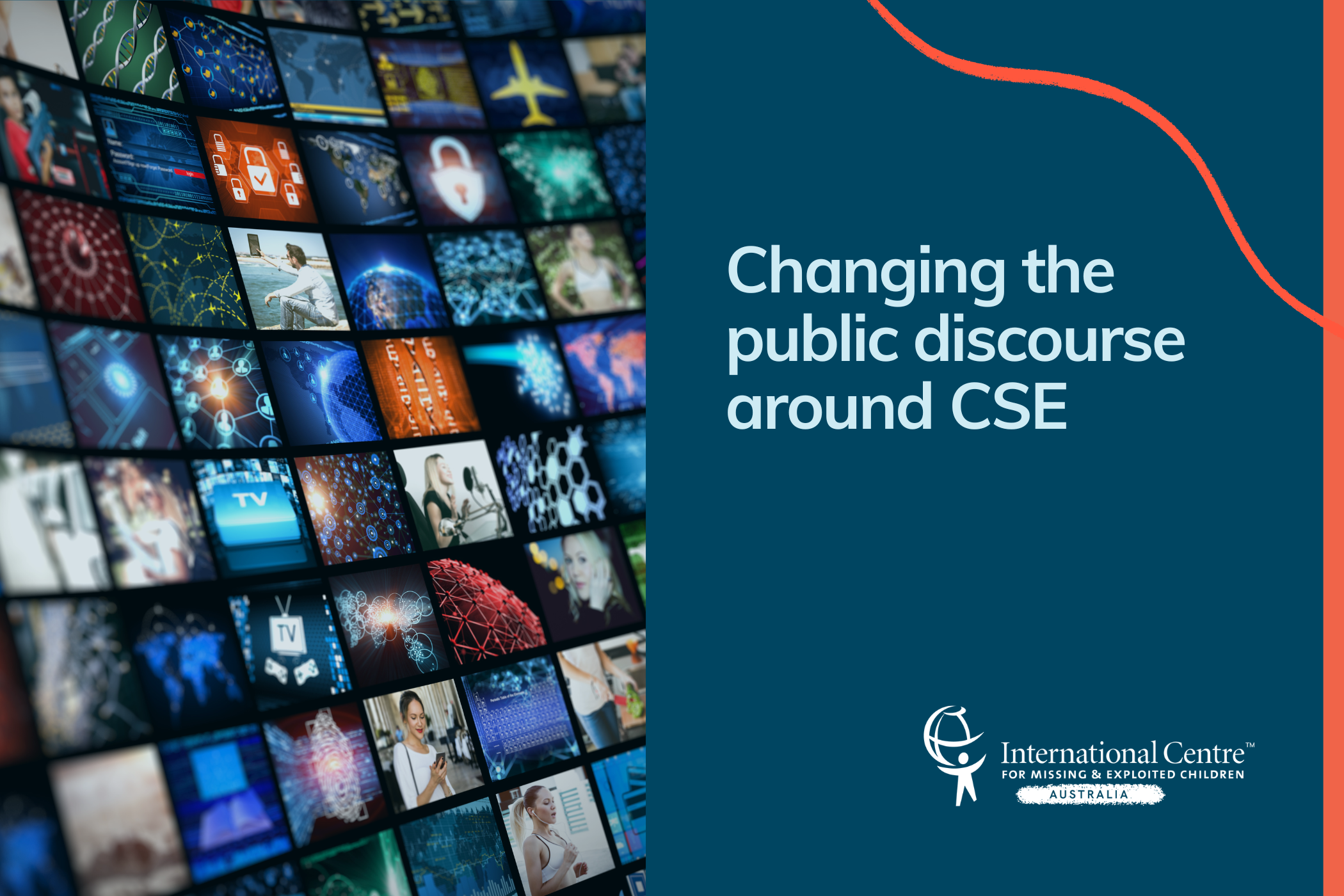


As a community we can all play a critical role in protecting children from harm. Whether you’re a frontline law enforcement officer, a parent, teacher or just someone who is a social media user, changing the public conversation surrounding the sexual abuse and exploitation of children is critical to reaching better outcomes for children. Using consistent and accurate terminology helps to generate awareness of current threats and issues, and can engage more people in taking action.
The news media is a critical platform for raising public awareness, communicating messages, shaping perceptions and breaking taboos about child sexual abuse and exploitation. Media professionals have considerable power and responsibilities through their storytelling role, from the way that they frame stories to the language and terminology they use. These stories and the wider public discourse that they generate can lead to a positive or negative impact on children and victim survivors of sexual abuse. Choosing the words we use in these conversations is an exercise in care and consideration.
In February Dr Kerry McCallum presented an outline of her research, conducted with her team at the News and Media Research Centre at the University of Canberra, to the attendees of our inaugural Monthly Brown Bag session. Through this research they are pioneering the development of media guidelines for the reporting of child sexual abuse. Inspired by the production of reporting guides on the reporting of suicide and metal ill-health, which was critical to shift the nature of the conversation around these issues, Dr McCallum’s team is working towards a set of guidelines that they hope will shape a new public conversation on child sexual abuse and exploitation.
Early results from their current research indicates that biases, uncovered in previous research, towards institutional and celebrity involvement in child sexual exploitation in media reporting of CSE are still prevalent, with the majority of stories focused on the perpetrator. Of the news stories that Dr McCallum’s team analysed, the perpetrator was the main subject in a vast majority of them. Victims and survivors were the focus in only 14% of articles.
Changing the way that media stories are framed, making them more victim survivor-centric, broadening the topics and creating more awareness through sharing stories of real people has a significant impact on changing public perception around the subject of child sexual abuse and exploitation, and ultimately saves more children from harm.
If you weren’t able to attend Dr McCallum’s presentation, the recording is available to members of the ICMEC Australia Member Portal, managed by our Partnerships Team. Dr McCallum has also taken part in an interview with our team to explore the concepts of her work more deeply and discuss how we can contribute as a response community to creating change. The resulting article will be published in our Member Portal shortly.
If you’re a member of the child sexual exploitation response ecosystem and you’re not yet a Member of the Portal, you can apply to register here. Once approved, you’ll gain access to exclusive content, like the interview with Dr McCallum, to help in the fight against CSE. Being a member of the Portal also gives you the opportunity to connect with cross-sector participants to facilitate collaborative solutions to this wicked problem.

ICMEC Australia acknowledges Traditional Owners throughout Australia and their continuing connection to lands, waters and communities. We pay our respects to Aboriginal and Torres Strait Islanders, and Elders past and present.